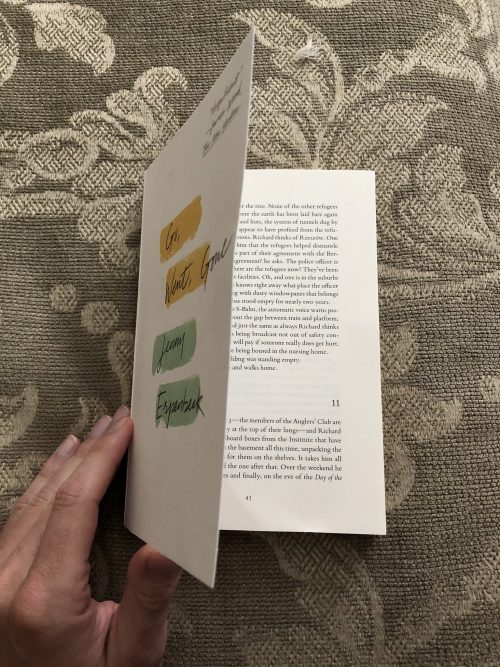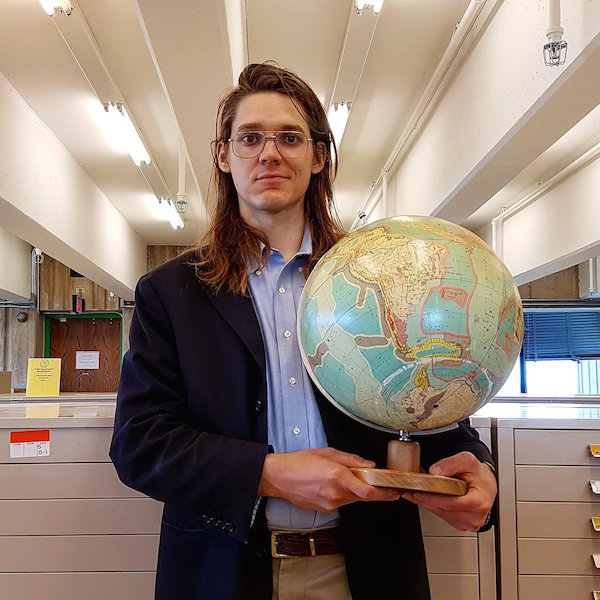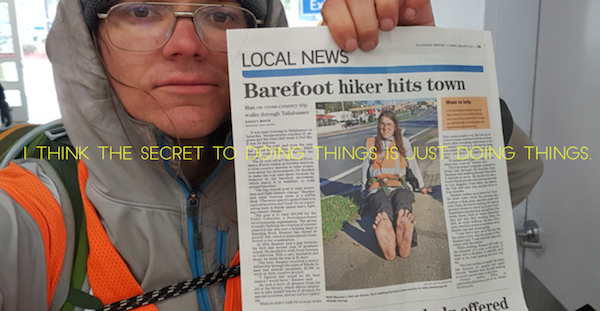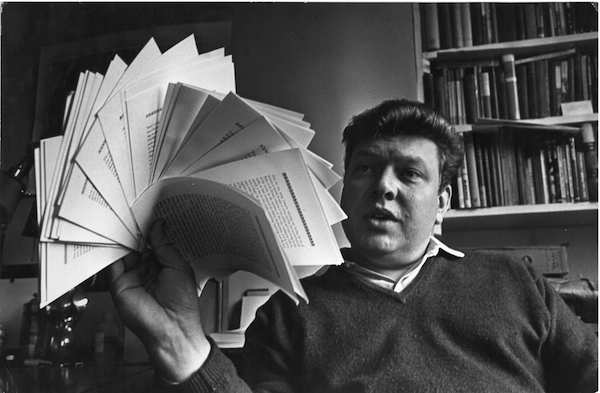Blake Butler
http://www.gillesdeleuzecommittedsuicideandsowilldrphil.com/
Blake Butler lives in Atlanta. His third book, There Is No Year, is forthcoming April 2011 from Harper Perennial.
http://www.gillesdeleuzecommittedsuicideandsowilldrphil.com/
Blake Butler lives in Atlanta. His third book, There Is No Year, is forthcoming April 2011 from Harper Perennial.

My copy of the latest novel by Jenny Erpenbeck—Go, Went, Gone—began immediately on page 41, leaving out the first 40 pages and legal copy, which at first I thought was a intentional feature of the narrative’s design. I’d already read several pages in the mindset of having been dropped Finnegans Wake-like into midsentence and midaction until I realized it was just a misprint, and still I liked the feeling caused by a novel kicking off with: “any interest in the woman or the tree,” which then led directly into the next and first full sentence: “None of the refugees is anywhere to be seen.”
It took me a while to find a site I could read the first 40 pages on for free and on the spot. When I did, I found the missing section seemed immensely different than the part I’d already read—and, really, even after having finished the novel, all the rest of it to come. The missing section somehow also seemed connected to my recent reality in an odd way—the protagonist is a classics professor whose wife has died, in the ongoing absence of which he’s forever in the midst of figuring out how to live his life alone, removed from all he ever knew. Without those 40 pages, the story otherwise felt quite differently marked—concerning a man without much background, who takes an interest in a group of refugees being held in stasis by the German government.
I think I enjoyed the language of the book and how it formed. It felt bizarre to think this copy was unlike any other copy of the novel, and that I owned it, that I might be the only person to have read it in the way that I had read, which is true of all reading, I think, but this time in a way that jarred my brain. I thought about returning it to the publisher for a correct copy, already read, but I also found that I enjoyed the ghostly presence of the absence of its context. I enjoyed imagining the other ways the text could have been changed, not by the author but by the machines that gave it shape long after the author had moved on; the many other ways the nature of the story would be changed depending on other kinds of error never seen, overriding the possible pleasure of the intended plot with a looming sense that nothing is sacred, and anything might yet be done. This would haunt me throughout the rest of the novel, like I’d been given a glimpse of some expanse behind a curtain and then instead forced to move into a labyrinth around the novel’s fleeting, hidden heart. I kept thinking of the intent of the author as different than the intent of the book object, and the world the object existed within; that is, mine. It might break down at any second, I kept thinking; I might turn the page and find something there no other reader could have found.
READ MORE >Saturday, February 4th at 2 PM at the Granoff Center at Brown University
All are welcome to join us for a celebration of the life of Mark Baumer
Please come out, we’d love to see you

Here’s a profile from the New Yorker on Mark and the tragic end to his beautiful life

RIP Mark Baumer. We will miss you, dear friend.

I’m not sure you could come up with a better name for an experimental writer than B.S. Johnson: it sounds like someone both regal and a joke, which for the English writer of this name, who walked a strange line between outsider artist and one at the cusp of avant-garde, it could hardly be more fitting. B.S. Johnson was decades ahead of his own time, both in the fuck-all way he approached the act of narrative, and the very outline of his life. His was a career that would not begin to find its traction until long after his death, and for my money, still not to the level he deserves.
From the beginning, it was clear that Johnson wanted little to do with the bullshit tropes of how a book is known to work. Raised by a working class family and spending his early years working as a bank clerk, he eventually taught himself Latin and left the workforce for college, then began writing as an assault on what he critically referred to as the “neo-Dickensian” output of those who would become his literary peers. READ MORE >
Last night, Nicolette and I were getting ready to see Joy Williams at the Folger-Shakespeare Library in D.C. We made and ate dinner, then Nicolette made a Twitter. I was so happy. I love it when people make Twitters. She chose her profile picture and header picture, then asked what her first tweet should be.
I suspect that everyone who has wholly dismissed Twitter has done so only after creating a profile and, after much inner turmoil, was unable to conquer the bleak anxiety of The First Tweet. Does a person just tweet a variation of the seemingly inevitable ‘first tweet’ tweet? Does s/he ignore the obvious and awkwardly, just, what? Start? Interested in how other people handled it, we found a website that let us type in the usernames of various writers, and see their first tweets. It was really entertaining, so we compiled a “Best Of” list containing some of your favorite author’s first tweets.
Enjoy!
10 mil, bro? The ceiling of a ‘serious author”s potential net worth is 10 mil, it seems. Do kids investing their monies into grad school to learn to type good know about that? I imagine guy owns a lot of Abercrombie and Fitch stock. Does Abercrombie sell stock? Maybe Baby Gap. I don’t know. What do you guys think Franzen’s biggest asset may be? Where would you, a serious author, invest all that money to grow it into enough money to end up even higher in the ranks on celebrity worth dot com?
I just now realized the volume indicator on my computer appears embedded into the screenshot. Was I turning up or turning down?
It’s Friday, fuck books, listen to Discordance Axis.